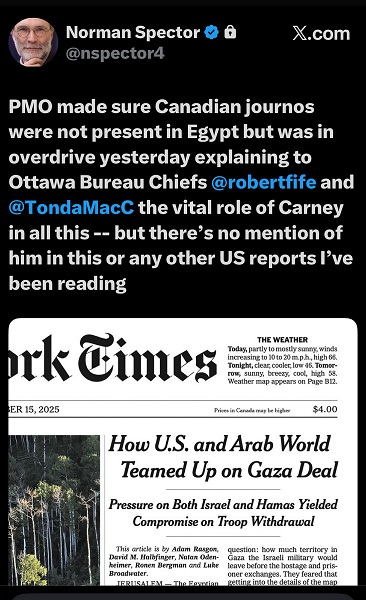Business
Canada drops almost all retaliatory tariffs on U.S.

 MxM News
MxM News
Quick Hit:
Canada has suspended nearly all of its retaliatory tariffs on U.S. products, easing inflation concerns and improving its economic outlook, according to Oxford Economics. Prime Minister Mark Carney’s new approach is aimed at protecting Canadian growth while avoiding a prolonged trade war.
Key Details:
- Canada’s effective tariff rate on U.S. goods is now “nearly zero” after broad exemptions were announced.
- Retaliatory duties remain on select U.S. products like orange juice, alcohol, coffee, clothing, and cosmetics.
- Oxford Economics upgraded Canada’s 2025 growth forecast to 0.9% despite predicting a mild recession.
Diving Deeper:
Canada’s government, under Prime Minister Mark Carney, has rolled back most of its retaliatory tariffs on U.S. goods, according to a new report from Oxford Economics. The decision comes after months of escalating trade tensions that began with the Trump administration’s tariffs earlier this year. In response, Canada initially slapped 25% import taxes on approximately C$60 billion ($43 billion) worth of U.S. goods and imposed additional levies on American automobiles.
However, Carney’s administration has since introduced a strategic six-month exemption for a wide range of U.S. products crucial to Canadian industries. Items used in manufacturing, processing, food and beverage packaging, health care, public safety, and national security are now largely exempt. Automakers, including major employers like General Motors Co., are also benefiting, as some U.S.-made vehicles can now enter Canada tariff-free.
Oxford Economics noted that with these exemptions, the real tariff-rate hike against U.S. goods is “nearly zero,” a move it called a “very strategic approach” to avoid harming Canada’s domestic economy. Tony Stillo, Oxford’s director of Canada economics, praised Carney’s leadership for prioritizing economic stability over political retaliation.
Still, not all U.S. goods escaped the tariffs. Products like orange juice, alcohol, coffee, clothing, and cosmetics remain subject to higher import taxes.
Carney, who recently won election by promising to manage the U.S.-Canada trade relationship effectively, has emphasized the need to strengthen Canada’s domestic economy. His government is planning increased spending on infrastructure and housing while pursuing new trade and security partnerships outside of the U.S. Unlike his predecessor, Justin Trudeau, Carney has rejected a strict “dollar for dollar” retaliation policy.
Despite these moves, Oxford Economics still forecasts a mild recession for Canada this year. However, it raised its growth expectations, projecting 0.9% growth in 2025 and 0.3% in 2026. Inflation is expected to briefly spike to 3% in 2026 before stabilizing.
Business
Quebecers want feds to focus on illegal gun smuggling not gun confiscation

The Canadian Taxpayers Federation released new Leger polling showing that half of Quebecers say the most effective way to reduce gun crime is to crack down on illegal gun smuggling from the United States, not a federal gun ban and confiscation.
“Law enforcement experts say the best way to make Canada safer is to stop illegal gun smuggling and Quebecers say exactly the same thing,” said Nicolas Gagnon, CTF Quebec Director. “It makes no sense to pour hundreds of millions into a confiscation that only takes guns from lawfully licensed gun owners.”
In 2020, the federal government launched its policy to confiscate thousands of so-called “assault-style” firearms from licensed gun owners. Ottawa recently announced a pilot project in Cape Breton to start taking firearms from individual owners.
The Leger poll asked Quebecers what they think is the most effective way to reduce gun crime. Results of the poll show:
- 51 per cent say introducing tougher measures to stop the illegal smuggling of guns into Canada from the United States
- 37 per cent say banning the sale and ownership of many different makes and models of guns along with a government buyback program
- Six per cent say neither of these options
- Seven per cent do not know
The results of the polls arrived as recorded remarks from Public Safety Minister Gary Anandasangaree made headlines in September.
In a leaked audio recording, the minister suggested the confiscation program is being pushed in part because of voters in Quebec, while also expressing doubt that local police services have the resources to enforce it.
Police organizations have long warned Ottawa’s confiscation program is misguided. The RCMP union says it “diverts extremely important personnel, resources, and funding away from addressing the more immediate and growing threat of criminal use of illegal firearms.”
The program was first estimated to cost $200 million. Just providing compensation for the banned guns, not including administrative costs, could cost up to $756 million, according to the Parliamentary Budget Officer.
Premiers of Alberta and Saskatchewan have both publicly said that they would not cooperate with Ottawa’s gun ban. Premier François Legault has stayed silent on this issue.
“Quebecers have been clear: the real problem is illegal gun smuggling, not law-abiding firearms owners,” said Gagnon. “The police have also made it clear the gun confiscation will waste money that could be used to stop criminals from committing gun crimes.
“Legault needs to stand up for Quebec taxpayers and refuse to help implement Ottawa’s costly and ineffective confiscation scheme. The federal government needs to drop this plan and focus its resources on intercepting illegal guns at the border: that’s how you actually make communities safer.”
Business
Emission regulations harm Canadians in exchange for no environmental benefit

From the Fraser Institute
By Julio Mejía and Elmira Aliakbari
The PBO estimates that the CFR will decrease Canada’s economic output by up to 0.3 per cent—or approximately $9.0 billion—in 2030. For context, that’s more than the entire output of Prince Edward Island in 2024, so the effects are roughly equivalent to wiping out the economy of a whole province.
The Carney government recently announced changes to the Clean Fuel Regulations (CFR), signalling stricter carbon content rules for gasoline and diesel—though few details were provided. While the prime minister expressed confidence that the changes will strengthen the Canadian economy, in reality, the CFR is designed to increase fuel prices in exchange for negligible environmental benefits. If the government is serious about prioritizing the wellbeing of Canadians, it shouldn’t tinker with the CFR—it should eliminate it.
The CFR, which came into effect in July 2023, aims to reduce greenhouse gas (GHG) emissions by requiring a gradual reduction in the carbon content of gasoline and diesel. By 2030, fuels must contain 15 per cent fewer GHG per unit of energy than in 2016. Those who don’t meet the target must buy compliance credits, which raises their costs. Ultimately, these costs are all passed on to Canadians at the pump.
According to a recent study by the Parliamentary Budget Officer (PBO), the CFR is expected to increase fuel prices by up to 17 cents per litre for gasoline and 16 cents for diesel by 2030. These costs will be added on top of already high, policy-driven fuel costs. In 2023, for example, the average price of gasoline in Canada was 157.3 Canadian cents per litre, compared to just 129.4 cents per litre in the United States—a 21 per cent difference, mainly the result of fuel taxes in Canada.
As fuel prices rise due to the CFR, the costs of running tractors, powering machinery, and producing and transporting goods and services will all increase, setting off ripple effects across our economy. The PBO estimates that the CFR will decrease Canada’s economic output by up to 0.3 per cent—or approximately $9.0 billion—in 2030. For context, that’s more than the entire output of Prince Edward Island in 2024, so the effects are roughly equivalent to wiping out the economy of a whole province.
Of course, increases in fuel prices also mean more pressure to household budgets. The PBO estimates that in 2030, the average Canadian household will incur $573 in additional costs because of the changes to the CFR, and lower-income households will bear a disproportionately larger burden because they spend more of their budget on energy.
The policy’s uneven impact across provinces is particularly significant for lower-income regions. For example, households in Nova Scotia and P.E.I.—two of the provinces with the lowest median household incomes—are expected to bear average annual costs of $635 and $569, respectively. In contrast, families in Ontario and British Columbia—two of the provinces with higher median household incomes—will pay less, $495 and $384 per year, respectively. Simply put, the CFR imposes more costs on those who make less.
To make matters worse, the expected environmental benefits of the CFR are negligible. Even if it delivers its full projected reduction of 26 million tonnes of GHG emissions by 2030, that represents only “two weeks of greenhouse gas emissions from the Canadian economy,” according to the federal government.
Given that GHG emissions cross all borders regardless of where they originate, in a broader perspective, that reduction represents just 0.04 per cent of projected global emissions by 2030. So, Canadians are being asked to pay a material price for a measure that will have virtually no environmental impact.
Toughening regulations on carbon content for gas and diesel won’t benefit Canadians, in fact, it will do the opposite. The CFR places a real financial burden on Canadian households while delivering no meaningful environmental benefit. When a policy’s costs vastly outweigh its benefits, the answer isn’t to adjust it, it’s to scrap it.

Julio Mejía
-

 Alberta2 days ago
Alberta2 days agoClick here to help choose Alberta’s new licence plate design
-

 National2 days ago
National2 days agoDemocracy Watch Renews Push for Independent Prosecutor in SNC-Lavalin Case
-

 Business2 days ago
Business2 days agoOver two thirds of Canadians say Ottawa should reduce size of federal bureaucracy
-

 Media2 days ago
Media2 days agoCanada’s top Parliamentary reporters easily manipulated by the PMO’s “anonymous sources”
-

 espionage2 days ago
espionage2 days ago“Suitcase of Cash” and Secret Meeting Deepen Britain’s Beijing Espionage Crisis
-

 Alberta1 day ago
Alberta1 day agoBusting five myths about the Alberta oil sands
-

 Frontier Centre for Public Policy1 day ago
Frontier Centre for Public Policy1 day agoOttawa Should Think Twice Before Taxing Churches
-

 City of Red Deer1 day ago
City of Red Deer1 day agoPlan Ahead: Voting May Take a Little Longer This Election Day






